QuestionI have recently adopted a Double Yellow Headed Amazon who is 20 years old. His owner died about a year ago. He and many other parrots where stuck in a garage and fed once a week for a year. There was no cleaning of the cage, no companionship, and no affection given to this bird. All is tail feathers have been plucked out from neglect and stress. He was rescued by the Humane Society, and I was allowed to adopt him. What is the best way to bring this bird out of his mildly aggressive and depressed mood, and get him back to a tame loving bird (according to the owners family this bird is very tame and speaks excellently)? He does let me pick him up on my hand but it takes alot of work and it is only for a few seconds.
AnswerHi, Brock. Thanks for posting your questions and the story about this amazon. How wonderful a person you are for adopting this parrot. Amazons are my favorite parrots and I have many. I like their personalities and they are very intelligent parrots.
I don't know how much you know about amazons, but they are very moody birds. They can be very friendly/tame one minute and the opposite the next. This is why it's very important for you to observe and learn this amazon's personality and behavior, what frightens him and what makes him happy, etc. DYHs have a general reputation for being aggressive birds, but this type behavior depends on the individual bird. One of their Dr Jekyll/Hyde "tricks" is acting very friendly and stepping up on a person's hand, then biting the crap out of you for what appears to be no reason! Be aware of this. They also don't like changes or new things too much. For example, my amazons don't like me when my hair is wet after shampooing so I don't even try to handle, or even touch, any of them at that time (I guess to them I'm a different person with wet hair).
I advise you to take him to an avian vet as soon as possible for a complete medical check up just to be sure he is OK medically.
You don't say how long you've had him, but before you can really do anything much with him, you need to allow him to settle down in his new environment in your home. He's most probably very stressed out from the year's of neglect and his recent moves. He evidently still trusts humans to a certain extent if he steps up on your hand. You must strive for a trust relationship between yourself and the parrot before he'll come around completely. When a parrot trusts it's human, the human can do most anything with the bird (and vice versa). Since he's 20 years old, this may take some time (the younger a bird is, the easier it adapts). However, I've seen many neglected/mistreated parrots of all ages come around very quickly once they've been removed from their neglectful environment. It is ESSENTIAL this bird learn quickly that you mean him no harm. Give him some time and let him get used to his new home, you, etc., before pressing him too much. I believe he'll come around quickly based on what you've stated about his previous environment.
A good, healthy diet is essential, as well as a properly sized cage (including a play stand or other for when he's out of his cage), proper lighting, etc., to start him on a path to mending his psychological and physiological self. Depending on the personality of the bird, you probably don't want to do all of these changes at once, as this will add additional stress...he needs as little stress at the moment as possible (you'll have to judge this).
You have a good thing going for you at the moment in that he does step up on your hand, even if it's only for a few seconds. This is a good sign! Keep doing this as often as possible so he'll learn that you won't harm him. As he becomes more comfortable with you, when he does get on your hand, try taking him away from his cage (with him on your hand). Go as far as he'll let you take him. He'll want to go back to his cage at first because his cage is his safety zone. If he doesn't want to go back to his cage, you're making progress! Be careful of biting during this time...if he wants to go back to his cage badly enough, he might bite you to get there. His wings should be clipped so he's at your mercy to get from place to place. If it's been a long time since he's been clipped, be careful after clipping because he could hurt himself if he falls to the ground, since he's not used to being clipped.
Taming/retaming is the process of interacting with one another in order to get used to each other, learn each other's behavior, etc. (building trust). Once you are able to get him away from his cage on your hand and he and you are comfortable enough with each other, let him sit on your hand, leg, etc., when you watch TV in the evening (avoid letting him perch on your shoulder to avoid bites in the face/neck). When you have dinner, make him a spot at the table (him on his play stand) and share food with him. Position his cage where he can see/participate in what is going on in your home, i.e., if you spend most of your time in the family room, place his cage there. I used to take one of my amazons in the car with me for short distances (parrots MUST have clipped wings to do this). Any opportunity you have to interact with this bird one-on-one should be taken advantage of. Showing love, attention, and affection should bring this bird around quickly. Be careful though because until he feels secure and safe, he could bite or show other bad behavior. In other words, if you work too quickly before the bird is ready, he might feel he has to defend/protect himself, and parrots do this by learning to bite to get what they want (for example, if you're in the kitchen and he wants to go back to his cage, he might bite you so you'll take him to his cage).
Most of all, you must keep control over this bird and not allow him to control you. For example, if he bites you for whatever reason, you must let him know this behavior is unacceptable by telling him "no," or "bad bird" or whatever word/phrase you choose to use. If he bites you and then you leave him alone, he'll learn that biting gets him what he wants. ALWAYS reward positive behavior and NEVER reward bad behavior when taming a parrot.
In my opinion, the above is your starting point for this DYH. I have a website that might provide more information for you about parrots in general (not knowing your knowledge base): http://www.angelfire.com/falcon/birdinfo/index.html
I wish you much success with this amazon. I'm here to help as much as I can. Come back as you have more questions. Again, this is a great thing you have done for this bird.
Chrys

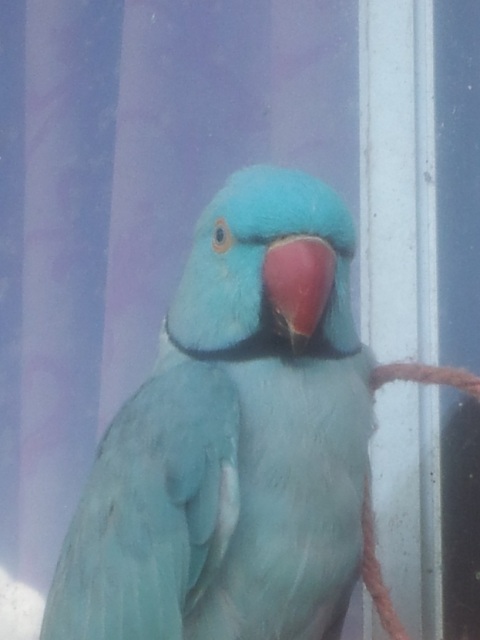 RE: Indian Ringneck probems
Question
Indy our Ringneck
Thank you for your he
RE: Indian Ringneck probems
Question
Indy our Ringneck
Thank you for your he
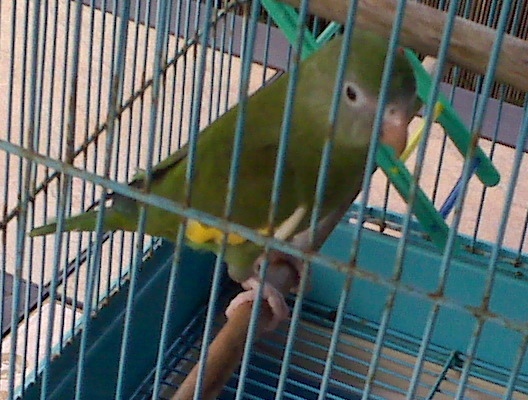 What type of parrot is this?
Question
Friendly bird
A week ago ths small parrot flew
What type of parrot is this?
Question
Friendly bird
A week ago ths small parrot flew
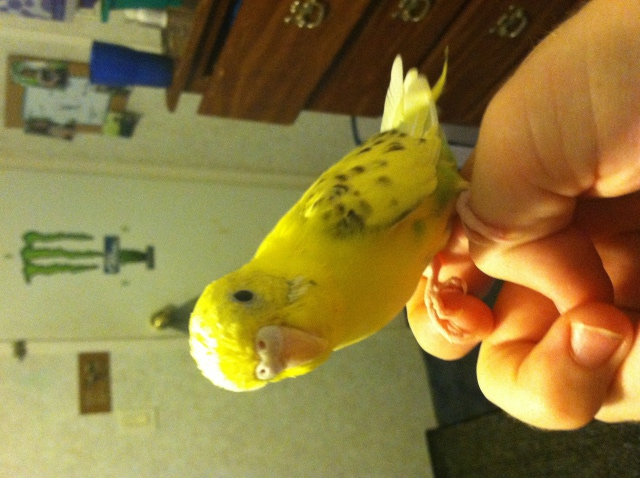 Parakeet gender
Question
Parakeet
Hi, I looked for an expert und
Parakeet gender
Question
Parakeet
Hi, I looked for an expert und
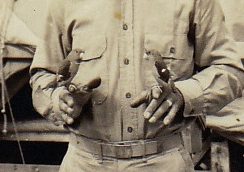 ID Birds
Question
Panama Birds
My uncle served in Panama in 1941
ID Birds
Question
Panama Birds
My uncle served in Panama in 1941
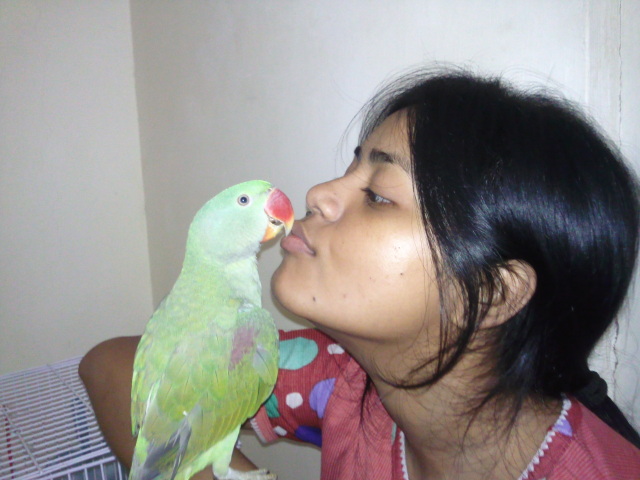 can i give my parrot chole(chana) called in hindi
Question
my little chaddi alexa
dear sir,
can give chan
can i give my parrot chole(chana) called in hindi
Question
my little chaddi alexa
dear sir,
can give chan